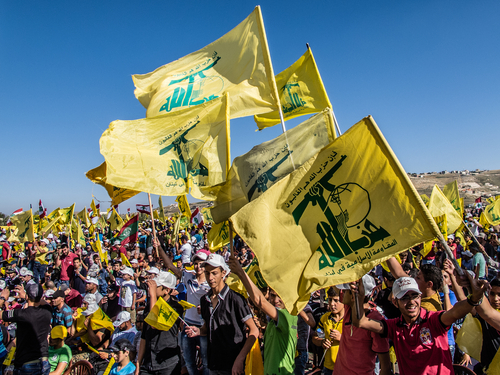The Israeli military’s decision to extend their stay in Lebanon beyond the ceasefire deadline has sparked intense global debate. This move brings into focus U.S.-Israel relations, with repercussions reverberating through international diplomatic channels. What implications does this hold for Israel’s long-term security goals, and how does it align with American interests?
Israeli Military’s Extended Presence in Lebanon
Israeli Prime Minister Benjamin Netanyahu has declared that troops will not withdraw from Lebanon within the agreed timeframe. The withdrawal conditions are clear: the Lebanese army must deploy and Hezbollah must retreat beyond the Litani River. However, Israel claims the ceasefire is not fully enforced and insists on a phased withdrawal aligned with U.S. coordinations.
Israel accuses Lebanon of failing to deploy forces south of the Litani, while Lebanon accuses Israel of ceasefire violations. The ceasefire agreement required Israeli withdrawal by January 26, a deadline now unmet. Israeli U.S. ambassador, Michael Herzog, emphasizes the need for more time for Lebanese military mobilization, with ongoing discussions with U.S. officials.
IDF troops are set to remain in certain areas of southern Lebanon beyond the planned 60-day withdrawal deadline outlined in the Israel-Lebanon ceasefire deal, a source told The Jerusalem Post.@AmichaiStein1 reports.https://t.co/xItdc5TPyh
— The Jerusalem Post (@Jerusalem_Post) January 24, 2025
Hezbollah’s Warning and Impact on the Ceasefire
Hezbollah’s leadership is clear in its warning that missing the deadline could collapse the ceasefire. The Lebanese militant group has suffered significant losses after the fall of Syria’s Bashar al-Assad cut off key support routes, adding pressure in this volatile situation. Continued conflict has displaced civilians, further complicating the region’s humanitarian landscape.
“We in Hezbollah are waiting for the date of January 26, the day on which the ceasefire requires a full Israeli withdrawal from Lebanese territory. If the Israeli enemy does not comply with this, it will mean the collapse of the ceasefire deal.” – Ali Fayyad
Joint efforts between the Lebanese army and UN peacekeepers are part of the agreement, with Hezbollah’s withdrawal an integral facet. However, with Israel citing insufficient Hezbollah withdrawal, the truce precariously hangs in balance, prompting Lebanon’s parliament to call for international intervention.
The Israeli government is seeking to keep military positions in southern #Lebanon past a Sunday withdrawal deadline, set in a November ceasefire agreement between Israel and #Hezbollah, the country’s ambassador to the #US said on Thursday.https://t.co/z6dUYDoXBx
— Saudi Gazette (@Saudi_Gazette) January 24, 2025
Shifts in U.S.-Israel Diplomatic Dynamics
The expected withdrawal also highlights U.S.-Israel diplomatic nuances. As Israel continues operations beyond Lebanon, international dialogue scrutinizes both nations’ foreign policy frameworks. Israeli claims that Lebanon is failing to disarm Hezbollah, while Lebanon insists on respecting deadlines.
With international officials deeming the region unsafe, the pressure mounts for renewed commitments to peace efforts. This ongoing situation tests U.S.-Israel relations and poses questions about international protocols when national security conflicts with diplomatic agreements.
Sources:
Israel will not withdraw troops from Lebanon by deadline, Netanyahu says
Israeli forces to stay in south Lebanon beyond withdrawal deadline | Reuters

